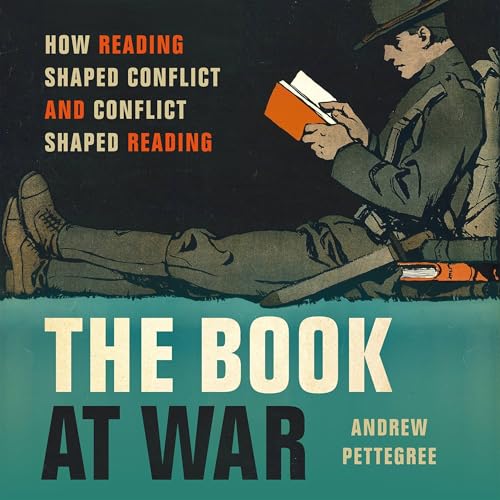
The Book at War
How Reading Shaped Conflict and Conflict Shaped Reading
Échec de l'ajout au panier.
Échec de l'ajout à la liste d'envies.
Échec de la suppression de la liste d’envies.
Échec du suivi du balado
Ne plus suivre le balado a échoué
Acheter pour 40,12 $
-
Narrateur(s):
-
Sean Barrett
-
Auteur(s):
-
Andrew Pettegree
À propos de cet audio
A top literary historian illuminates how books were used in war across the twentieth century—both as weapons and as agents for peace
We tend not to talk about books and war in the same breath—one ranks among humanity’s greatest inventions, the other among its most terrible. But as esteemed literary historian Andrew Pettegree demonstrates, the two are deeply intertwined. The Book at War explores the various roles that books have played in conflicts throughout the globe. Winston Churchill used a travel guide to plan the invasion of Norway, lonely families turned to libraries while their loved ones were fighting in the trenches, and during the Cold War both sides used books to spread their visions of how the world should be run. As solace or instruction manual, as critique or propaganda, books have shaped modern military history—for both good and ill.
With precise historical analysis and sparkling prose, The Book at War accounts for the power—and the ambivalence—of words at war.
Ce que les critiques en disent
—Peter Fritzsche, author of Hitler’s First Hundred Days
—David Kynaston, author of Till Time’s Last Sand
—Judith Flanders, author of A Place For Everything
The book itself was very well researched and written, and covers many issues related to books during and after WWII that are not, or barely, covered in other books on this subject. In particular: the protection and destruction of libraries (institutional and personal), the need for and distribution of books to prisoner of war camps, restrictions on printing (due to both paper shortages and propaganda/ political reasons), how book publications came back to life post-war (what was printed, translations, demand, distribution worldwide) and a bit on how libraries began to be built up again. A real ah ha moment for me was the demand for books for POWs for so long after the war, but of course it took years for the camps to wind down. I was also interested to hear about the role the Red Cross played.
BEST content, WORST narration
Un problème est survenu. Veuillez réessayer dans quelques minutes.


